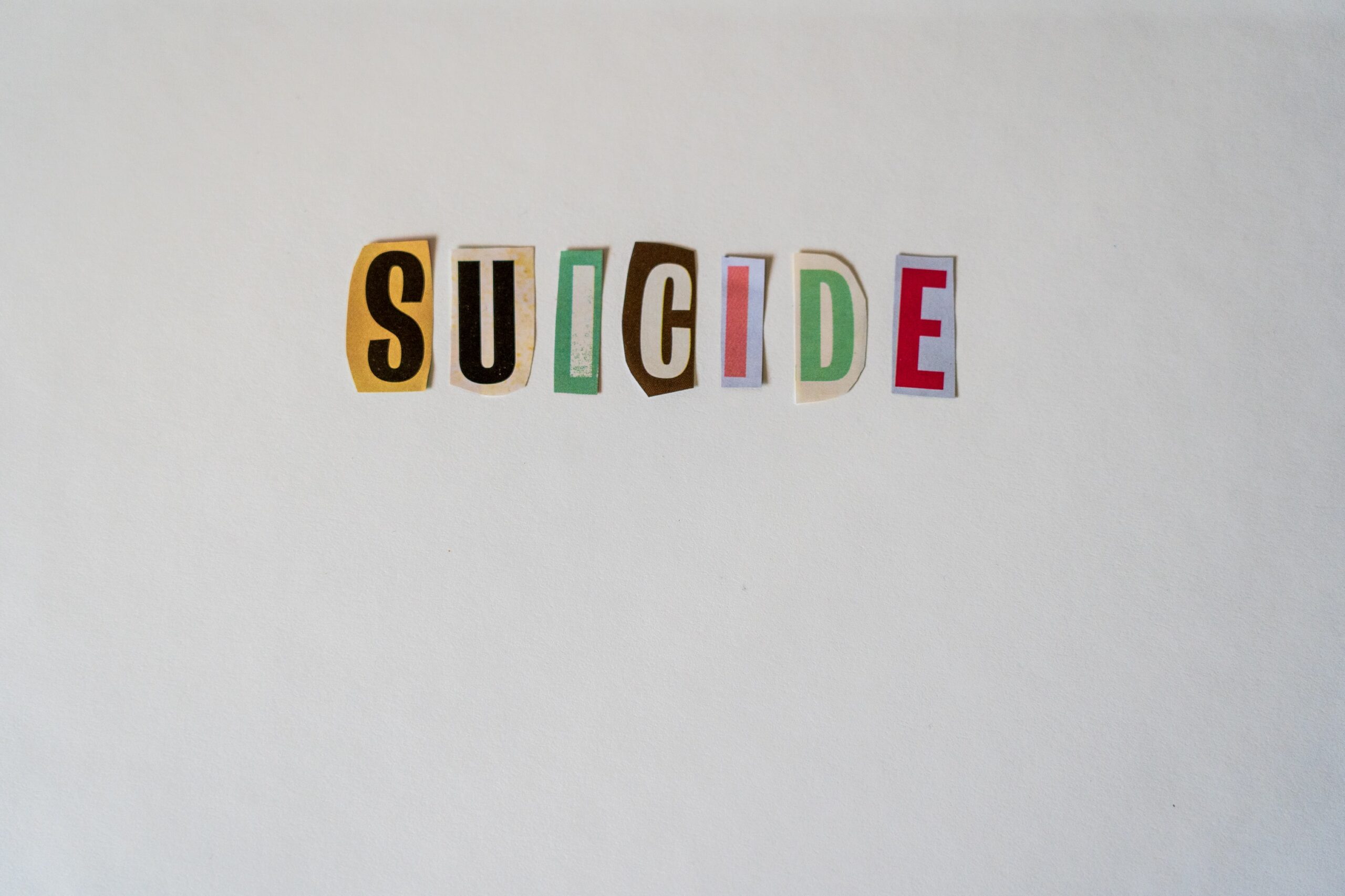What is suicide?
Suicide refers to the act of someone taking their own life. Worldwide, roughly one person dies by suicide every 40 seconds. For every suicide there are many more attempted suicides. People experiencing suicidal thoughts can often feel alone and overwhelmed with them but many people think about suicide at some point.
Suicidal thoughts can be abstract, such as ‘I wish I wasn’t here’, ‘I don’t want to wake up’, or ‘nobody would miss me if I went away’. Suicidal thoughts can also be more specific, such as thinking about methods and ways of dying or someone making plans to end their life. It’s important to take action when you notice any suicidal thoughts in yourself or someone else but it’s especially urgent when there are more specific thoughts and concrete plans present.
What causes suicidal feelings?
Suicide can affect anyone of any background at any time in their lives. However, it’s more common in men, perhaps because men tend to talk about their feelings less. It’s also more common in people from LGBTIQ+ communities, maybe due to discrimination or difficult experiences with coming out. People can also be more vulnerable to suicide if they’ve self-harmed or attempted suicide before, or if they’ve lost someone to suicide in the past.
There is no one cause of suicidal feelings. However, having mental health issues or other life problems such as relationship issues, housing issues or financial problems can make it more likely that someone will feel suicidal. Having experienced a traumatic event can make suicide more likely. Taking some types of anti-depressants has also been linked with suicidal feelings, especially in children and young adults.
What are the symptoms of feeling suicidal?
Suicidal feelings are experienced differently by everyone. Someone with suicidal feelings may experience some of the following things, but the list is not exhaustive:
Feeling overwhelmed and finding that it’s difficult to cope
Being tearful and feeling hopeless
Feeling abandoned or not wanted by others
Experiencing emotional pain that seems to have no end
Feeling physically numb and removed from their body
Difficulty with sleeping and eating
Not wanting to see friends and family
Experiencing low self-esteem
Self-harming or thoughts of self-harm
Feelings of it not being possible to be happy again
How to look after yourself if you’re feeling suicidal
There are some self care steps you can take if you notice yourself feeling suicidal:
- Make sure you’re somewhere safe and make yourself comfortable
- Take things minute by minute and congratulate yourself for getting through each minute
- Talk to someone about how you’re feeling
- Splash your face with very cold water or hold an ice cube in your hand and notice how it feels
- Focus on breathing slowly and deeply for 30 seconds
- Be kind to yourself and talk to yourself like you’d talk to a good friend
- Tell yourself you can get through this and that it won’t be like this forever
- Promise yourself you won’t act today
- Write down your reasons for living such as loved ones or something you have to look forward to even if it’s something small like the next episode of a show you’re watching or a good meal
Making a safety plan
A safety plan is a tool for helping someone to cope with suicidal thoughts and feelings. It’s a written document that includes details such as:
- How to know when the person is nearing crisis such as the physical sensations or thoughts they might experience
- Self-help strategies that the person can try, such as those listed above
- Details of friends and family that the person can contact in a crisis situation
- Professional services that the person can call
- How to make the person safe such as by ensuring the immediate environment doesn’t have anything they could use for harming themselves
How to help someone else who’s feeling suicidal
It can be challenging when someone you know seems suicidal or tells you that they feel this way. You might feel unsure about what to do but you can definitely help. Try to encourage them to talk about their feelings more. Suggest that they seek treatment. Help them to find ways to distract themselves from their feelings. If it’s a mental health emergency then urge them to seek immediate support and arrange this for them if they don’t feel able to do it themselves. When someone tells you they’re feeling suicidal it’s helpful to:
- Try to stay calm, to listen to them and to show them compassion.
- Try not to judge the person. It’s important to take them seriously and believe them about how they’re feeling. Research shows that it’s best to ask simple and direct questions if someone tells you they’re feeling suicidal.
- Don’t worry about using the word suicide, speaking about suicide openly makes it less likely that the person will act on their feelings.
How can Online-Therapy.com help?
At this time, we do NOT offer services to those actively suicidial. Please CLICK HERE for Global Resources for Suicide. If you are currently in crisis, please call your local emergency department.
At Online-Therapy.com we offer an integrated and holistic package to support your well-being. Our approach includes regular sessions with your chosen therapist, unlimited messaging and worksheet support, journaling and yoga. This ongoing support means that you have the daily expert guidance you need to make progress and feel stronger.




Leave A Comment